Historic Preservation Easements
A historic preservation easement is a voluntary legal agreement, typically in the form of a deed, specifically drafted to ensure that the historic character of a site or structure will be preserved in perpetuity. Easements may also provide the property owner, or easement donor, tax benefits or flexibility with land development regulations.
Reasons to donate a historic preservation easement to the Teton Trust for Historic Places
A historic preservation easement is a particularly useful and flexible tool:
- It allows a property owner to retain private ownership of the property while ensuring that the historic character of the property will be preserved.
- If certain criteria are met, the owner may be eligible for a federal income tax deduction for the value of the easement. Federal estate taxes also may be reduced.
- In Teton County land development opportunities, like the transfer of development rights (TDRs) as well as flexibility with LDR regulations may be available.
- Easements reduce the amount of demolition material transported and buried in a landfill. This disposal is typically measured in thousands of tons.
- Historic easements sustain meaningful places, local character as well as connection and commitment to our community.
- Historic preservation easements contribute to a strong economy. In a study conducted in Colorado, researchers found that every $1 million spent on historic preservation in that state leads to $1.03 million in additional spending, 14 new jobs, and $636,700 in increased household incomes across the state.
Responsibilities and Authority of Easement Managing Organizations
A historic preservation easement gives the organization to which it is conveyed the legal authority and responsibility to enforce its terms. This includes the right to inspect the property to ensure that the owner is complying with the terms of the easement contract.
Under the terms of a typical historic preservation easement, a property owner (easement donor) places restrictions on the development of, or changes to, the property and transfers these restrictions to a qualified preservation organization (easement holder) who then assumes certain rights and responsibilities associated with perpetual protection. The easement does not prevent future sales, leases, or estate planning, and the owner remains responsible for maintenance and taxes.
Responsibilities of Property Owners
Baseline Documentation
Property owners are responsible for providing Teton Trust baseline documentation. Baseline documentation includes photographs, site plans, floor plans, and any other material that is incorporated into the preservation easement to document the scope of the preservation easement’s protection, and the existing conditions of the property and protected features at the time of the easement donation. While it is the property owner’s responsibility to provide documentation, Teton Trust can help you with referrals to qualified preservation professionals.
Contract Fee
Historic preservation easements are customized contracts, requiring expertise and time. In addition to the benefits provided by our volunteer board members, there are unavoidable expenses involved in the design of each easement. Each easement property owner is charged an $800 fee prior to Teton Trust’s work.
Legal Fees
Historic preservation easements are legal contracts. Property owners are responsible for their own attorney’s fees.
Donations
The Teton Trust for Historic Places strongly encourages a donation to the Teton Trust Stewardship Fund. All donations to the Stewardship Fund are tax deductible to the extent allowable by law. This fund is endowed and all grants from this fund are restricted for expenses related to the stewardship of Teton Trust historic preservation easements.
Federal Tax Benefits
Owners whose properties are listed on or determined eligible for the National Register of Historic Places are also eligible for Federal tax credits to offset the cost of maintenance. Under the Federal tax credit program, income-producing properties are eligible to receive a full 20% of the cost of certified rehabilitation expenditures in federal tax credits.


